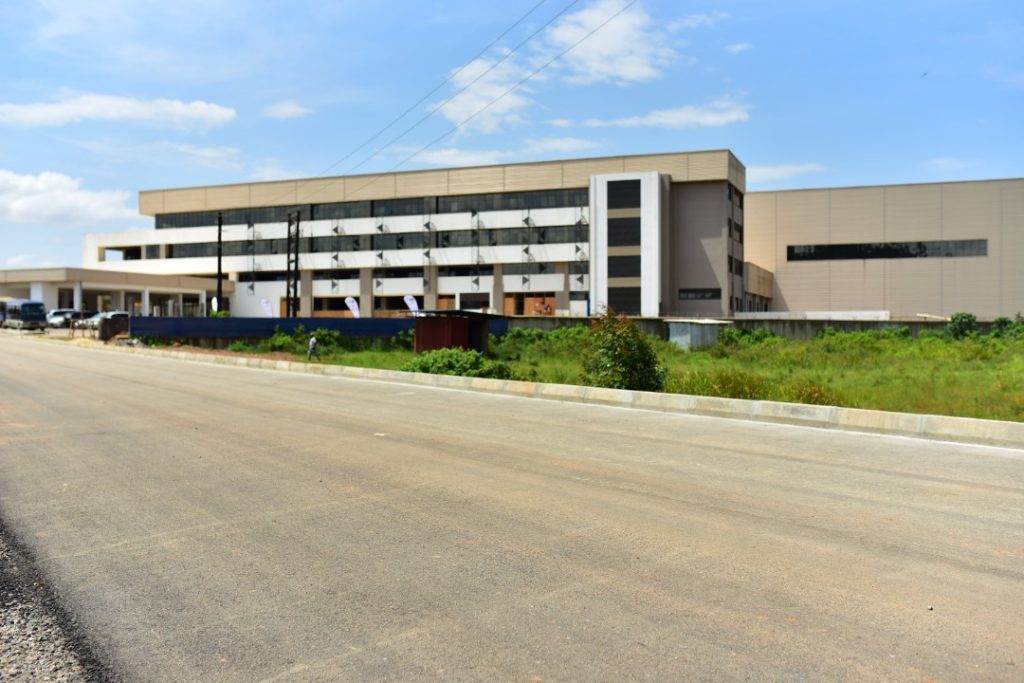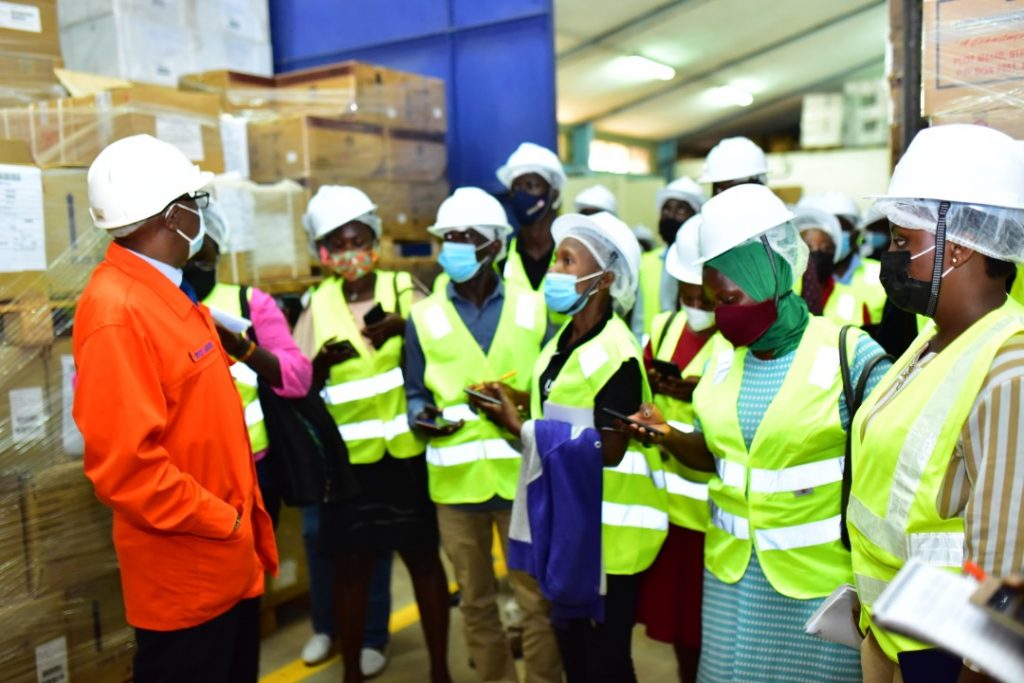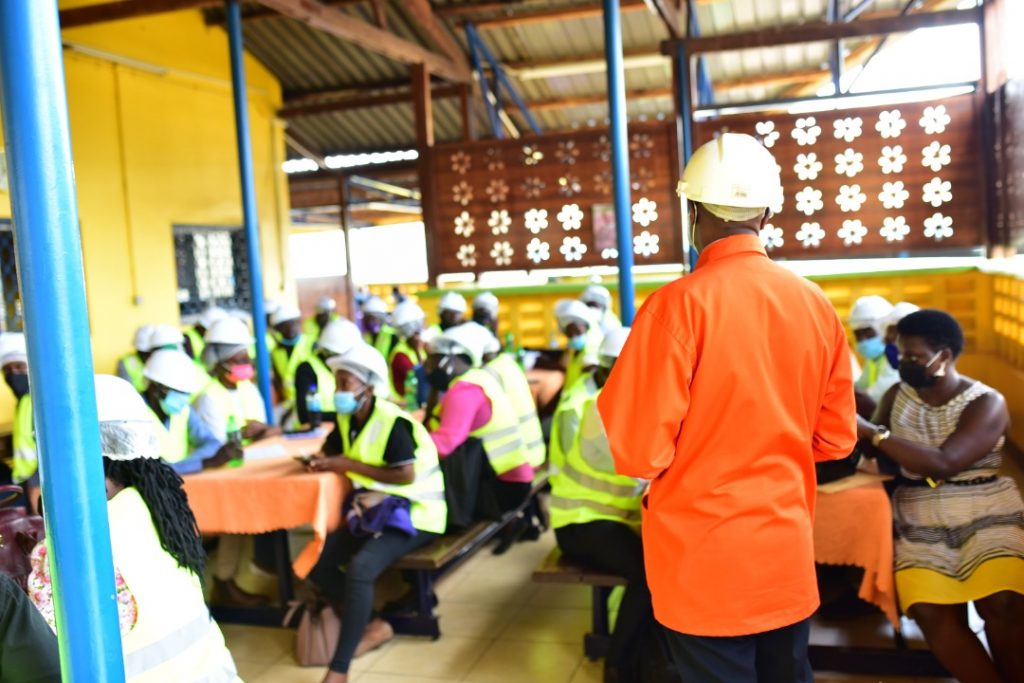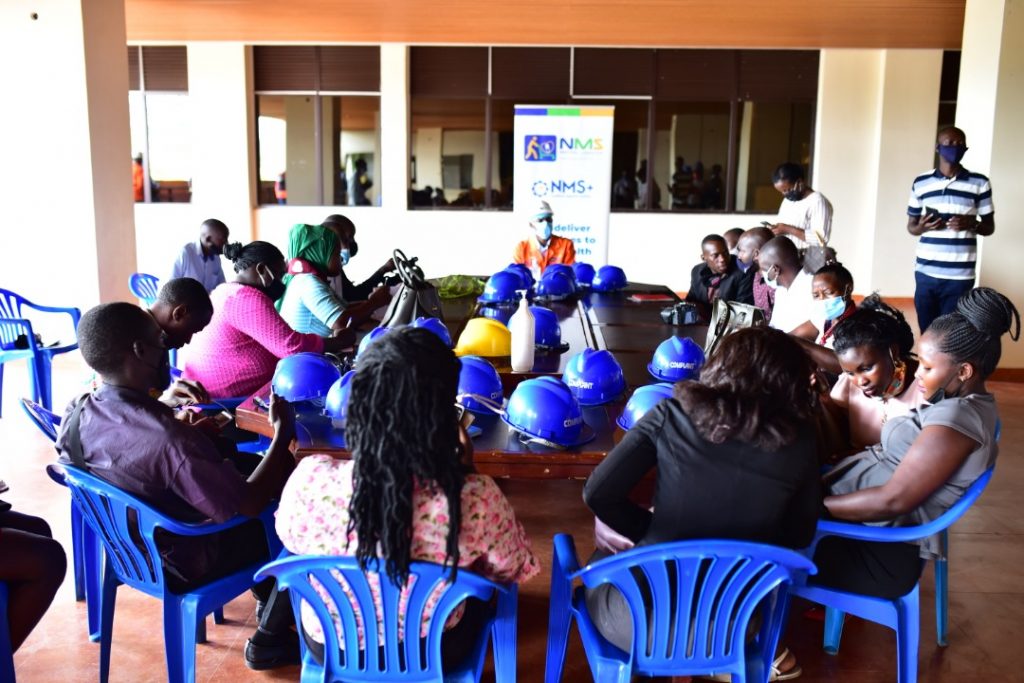
National Medical Stores has began training all health workers across the country ahead of the rollout of the new NMS plus platform, an initiative which will be used to enhance transparency in procurement and delivery of medicines across the country.
The NMS plus initiative will help hospitals in placing of orders, tracking order status, and receiving medicines.
In the past, health facilities have made orders using paper trails which sometimes gets misplaced or are poorly quoted.
The NMS plus initiative however, will change all that as it will ensure more accountability and transparency.
Each health facility will be able to place their order, monitor their orders and we will now be able to see which hospital is ordering for what medicine to avoid issues of drug theft and expiration.
The move was revealed by the National Medical Stores General Manager Mr. Moses Kamabare on a media tour of journalists at the NMS Headquarters in Entebbe.
According to the NMS plus project head Mr. Stephen Kisuze, the initiative will help reduce the prifellage of medicines across the country.
“The current problem was that with paper based processes, there are a lot of challenges you have to deal with. It’s not possible to share needs of health facilities quickly. Decisions are made based on assumptions”, Mr. Kisuze said.

The new initiative, which takes effect on 1st July 2021, will be used to place orders, track order status, and receive medical supplies to promote transparency and accountability in our health facilities across the country.
“So far we have carried out the piloting and training of 50% of the hospitals. We will soon train the remaining health centers in the first phase and upload them on the system starting 1st July,” Mr. Kisuze said.
NMS has so far conducted training in 144 health facilities out of the 268 targeted for the first phase (All Health Center IVs, general, regional and National referrals).
Phase II will commence by August 2021 take care of Health Centre IIIs and below.
On issues of internet connectivity, Mr Kamabare said,
“We shall be giving modems and internet connectivity at our cost to all the health facilities that do not have access to the internet,” he emphasized.
End of phase III will be in 2 years.
DELIVERY SCHEDULE
Kamabare also sensitized the media about the NMS delivery schedule which NMS’ most important document because it’s “our manifesto.”

He said the delivery schedule “is the promise we give to health facilities. In this delivery schedule, NMS has divided the country into five regions and the districts in each region are given a timeline within which they should submit their order for medicines and medical supplies, and NMS indicates when the delivery will be effected.”
He added: “In this social contract with the health facilities, we tell the districts in a given region that in case NMS has not delivered in the agreed time, there is a toll-free number to call and follow up.”
No other government institution has this kind of exact schedule.
Each government health facility gets medicines delivered once every two months.
This helps health facilities plan well for their medicines and supplies’ need. “Previously, the health facilities would be waiting for medicines and medical supplies like farmers who depend on rain, without knowing when the rains would fall. But now the health facilities know exactly when deliveries will be made,” said Kamabare
NEW WAREHOUSE
During the tour of the NMS state-of-the-art warehouse in Kajjansi today, Kamabare said NMS has built the biggest medicines warehouse in Africa with support from Global Fund and GAVI.
He said NMS wanted more space because the volume of products it handles has tremendously increased.
By 2008, the value of products handled by NMS was worth UGX 60 billion, but last financial year they were worth UGX 1.3 trillion. Consequently, the warehouse at Entebbe is not enough.
“The new state-of-the-art warehouse at Kajjansi will increase the capacity to 30,000 pallet positions compared to the current 8,000 pallet positions,” said Kamabare.

By 2008, the value of products handled by NMS were worth UGX 60 billion, but last financial year they were worth UGX 1.3 trillion. Consequently, the warehouse at Entebbe is not enough.
He said the warehouse should have been commissioned by now but COVID-19 disrupted the plan. The new schedule is to have the warehouse opened by December this year.
The new warehouse will also be environmentally friendly with 50% of all its power requirements being produced by solar. Medical testing will also be housed at the medical testing laboratory.
